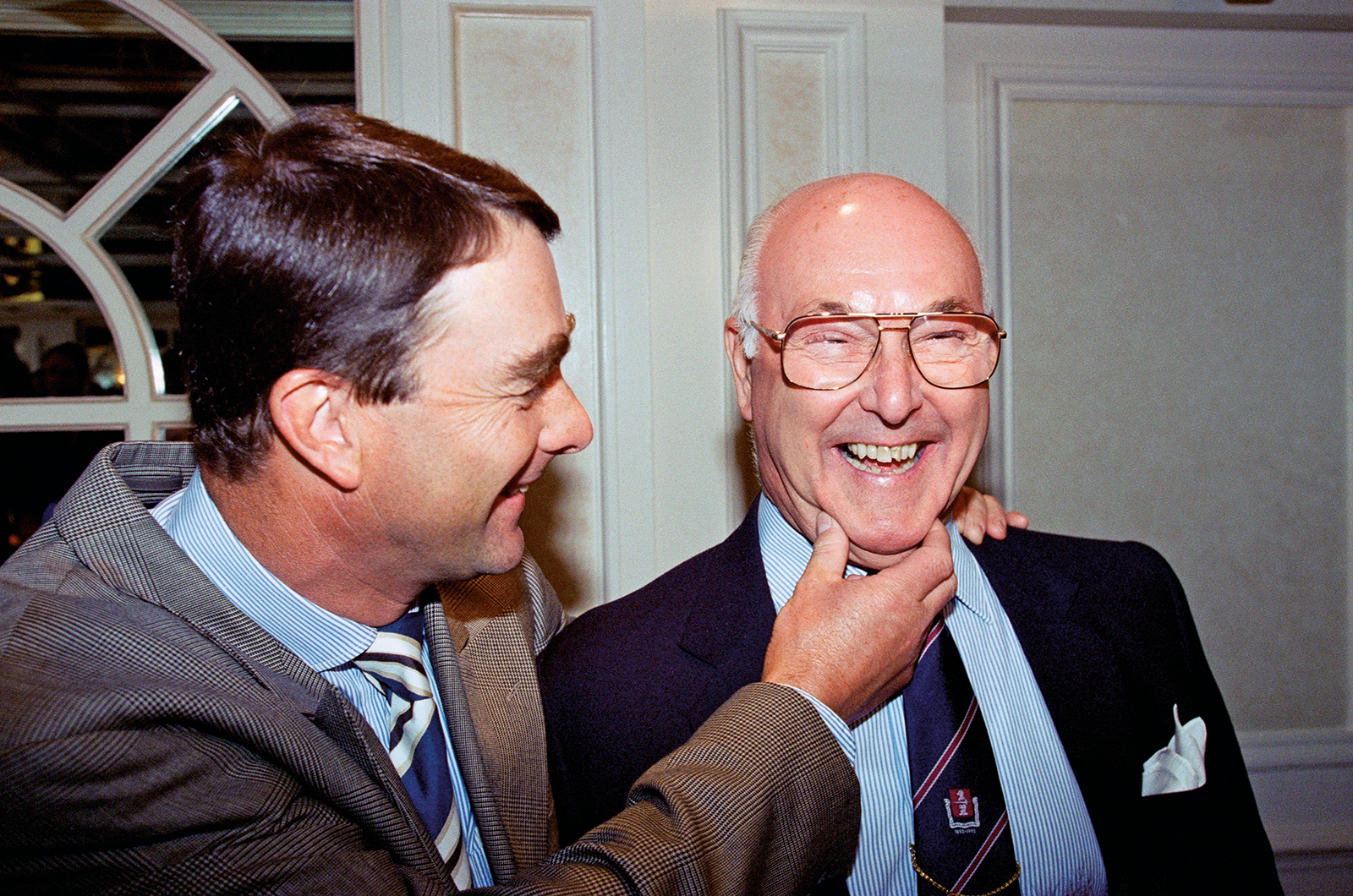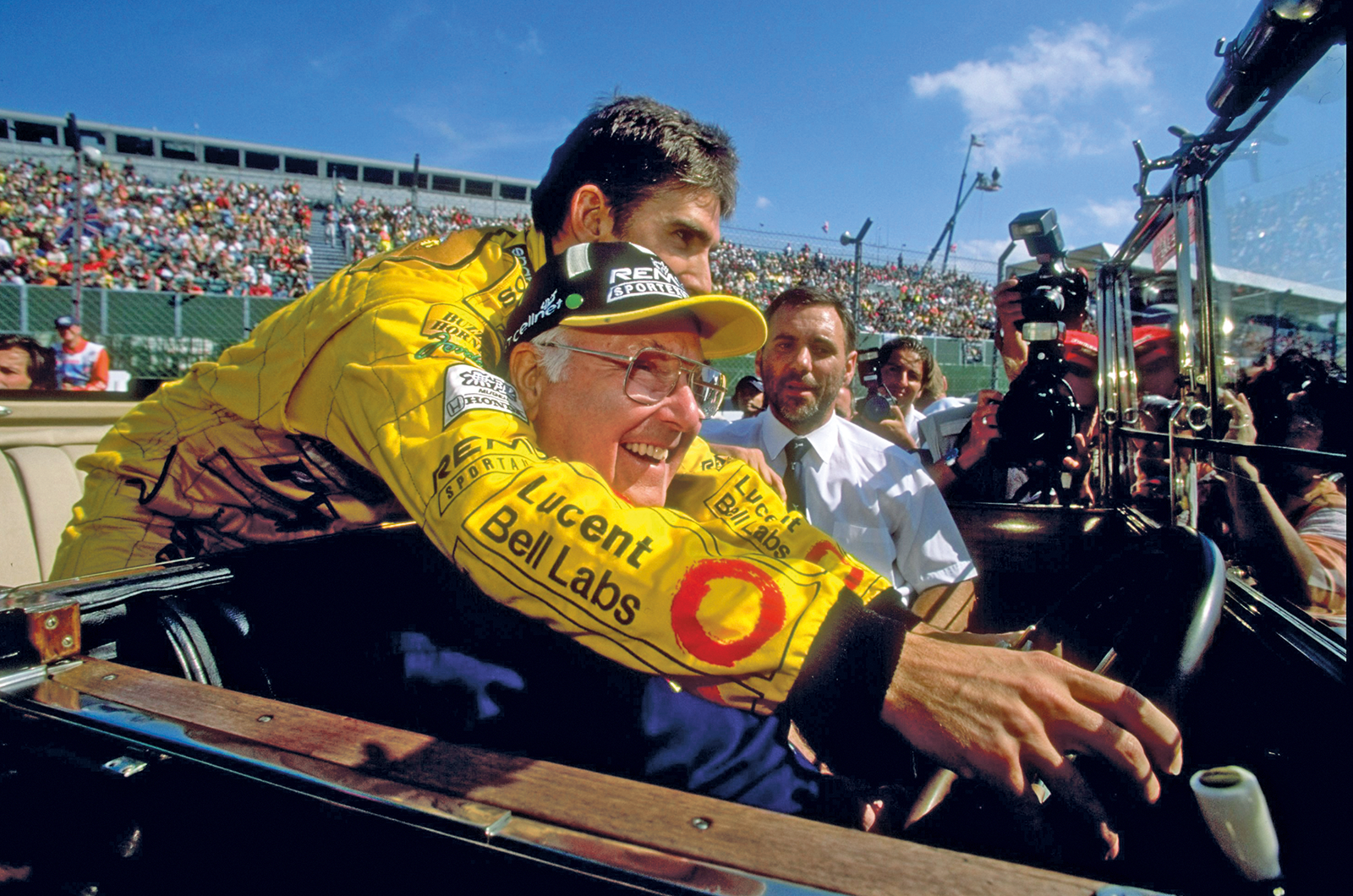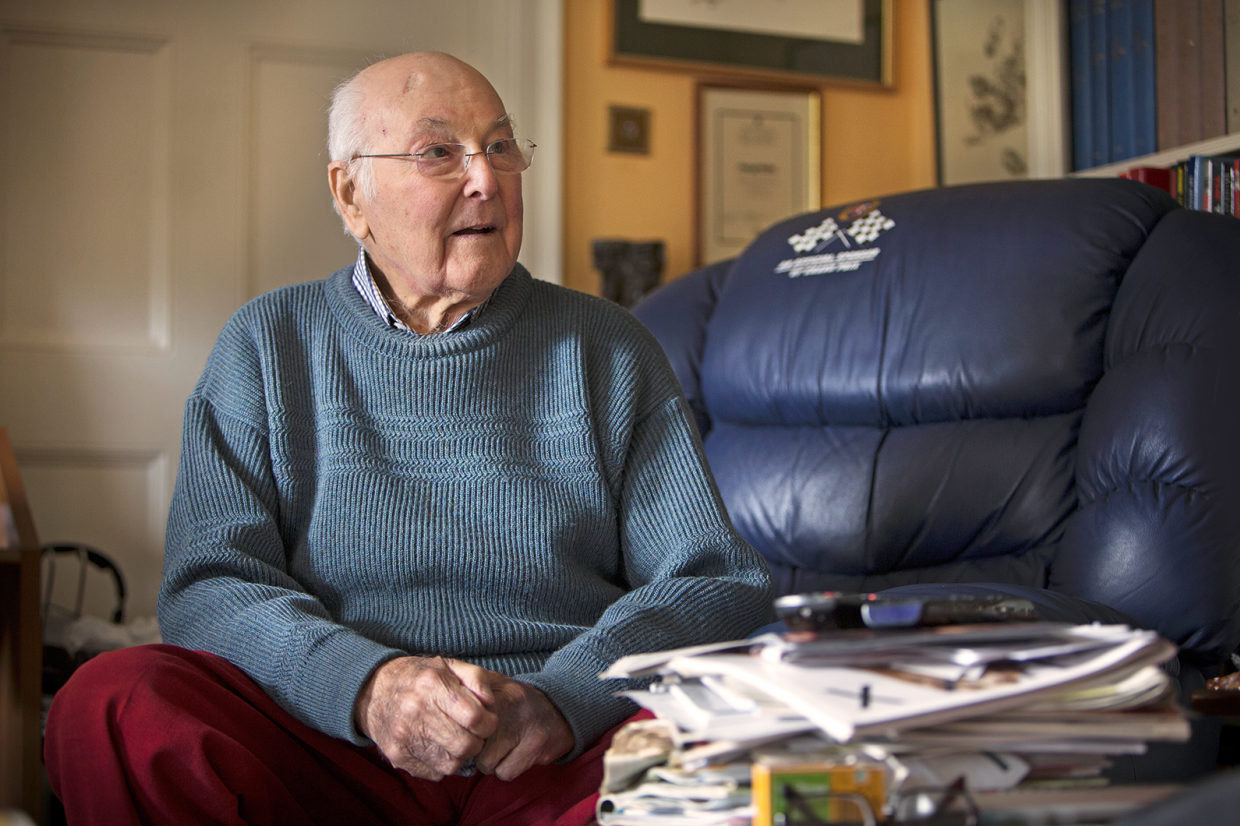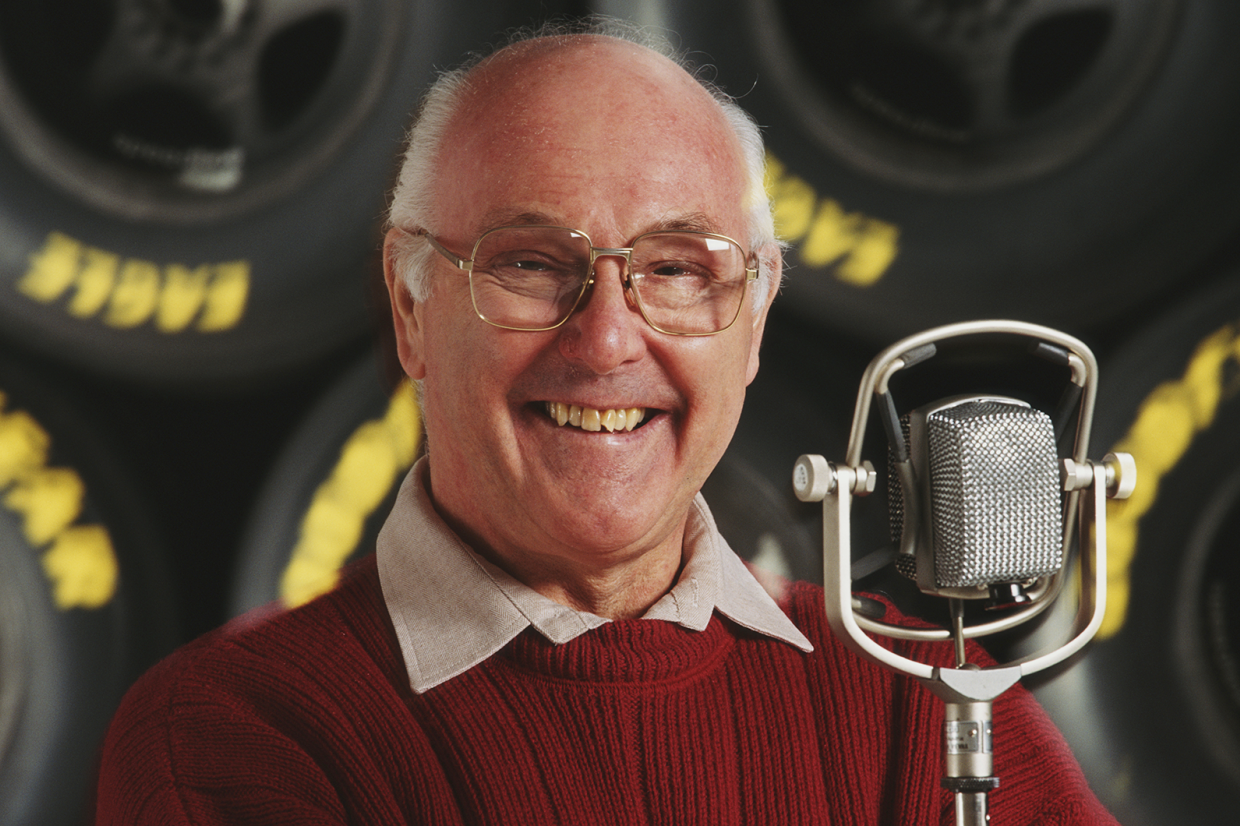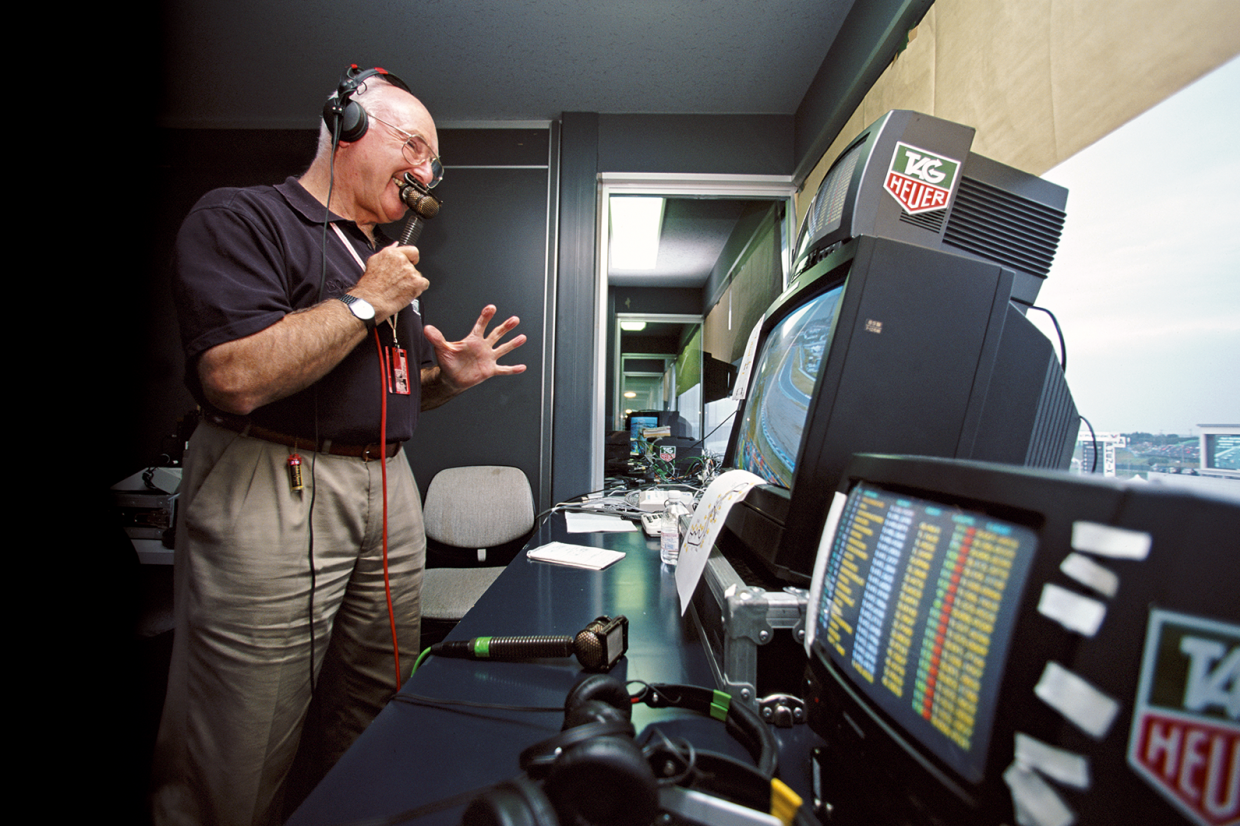
Unbridled and unrelenting enthusiasm. There is no better phrase to sum up Murray Walker in word and deed.
His innate love of motorsport – on two wheels and four; on dirt or on Tarmac – was as abiding and powerful as his method of describing it across the airwaves.
Commentating on a sport he adored was seen as a privilege that he urgently needed to share with his viewers across the world.
For Murray, there was no such thing as a boring motor race. Journalists, staring at blank computer screens while searching for positive words to sum up a processional Grand Prix, became accustomed to Walker, still flushed with a couple of hours’ worth of adrenalin, bouncing into the media centre and declaring: “Well! That was incredible!”
When faced with incredulous looks and asked which race he was referring to, Walker would be genuinely perplexed; almost affronted.
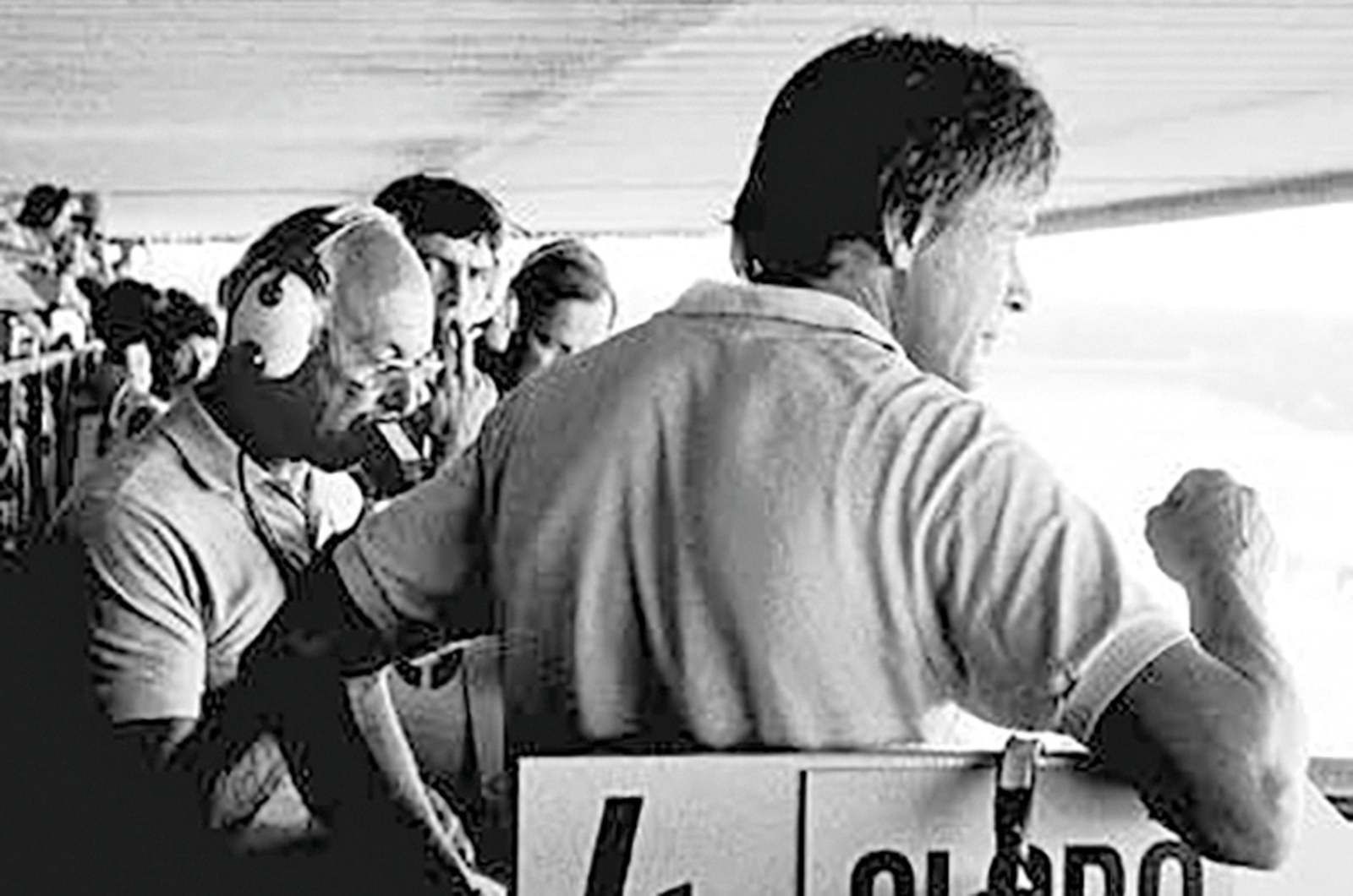
Murray Walker and his abrasive co-commentator James Hunt developed a memorable partnership
This would come as no surprise to his television producers. Neil Duncanson, on behalf of his independent production company, Chrysalis, worked with Murray from ITV’s takeover of Formula One coverage in 1997 until Walker’s retirement at the end of 2001.

